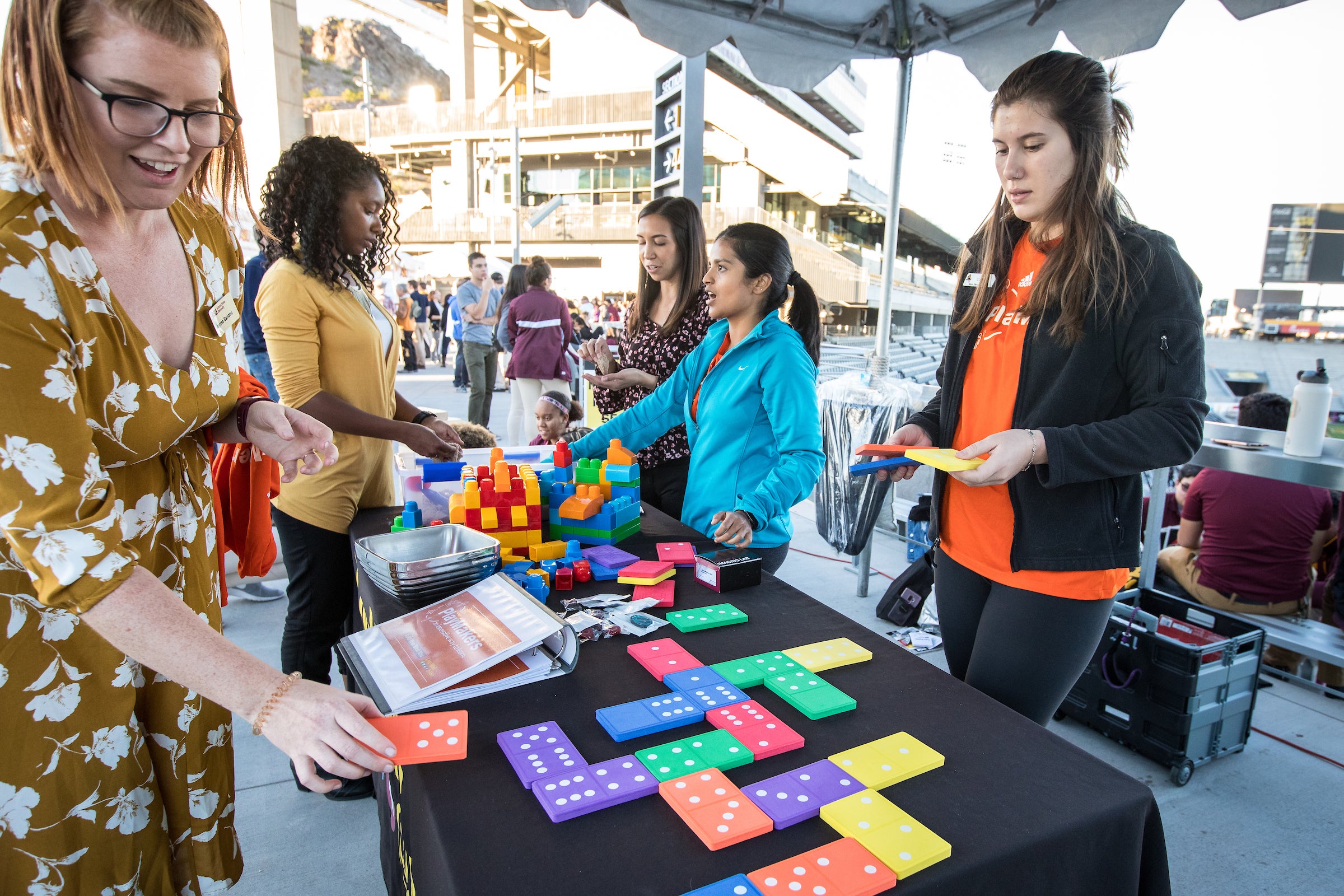“Why should I play this game of pretend?” sings a character in the musical “Dear Evan Hansen.” “Remembering through a secondhand sorrow?”
The show, which opens Tuesday night at ASU Gammage, has been a smash hit on Broadway and on tour throughout the country, winning praise for the way it addresses mental illness in young people. The title character is a high school student with severe social anxiety that keeps him from making friends, and the show also deals with issues of depression and suicide.
“Dear Evan Hansen,” which won the Tony Award for best musical, was the fastest sellout of a show ever at ASU Gammage. It has struck a chord with many people, said Aaron Krasnow, associate vice president of ASU Counseling Services and Health Services.
“It’s of the moment, and that moment is about mental health. And that’s good,” he said.
Mental health among college students nationwide has gotten a lot of attention in the past few years, as more students ask for help. From 2009 to 2015, the number of students across the country visiting counseling centers increased by about 30 percent, the Center for Collegiate Mental Health reported. The most common issues that students are dealing with are anxiety, stress and depression.
“At this point in time in culture, particularly for this generation, is a recognition of the need to care for their own mental health and the mental health of their communities,” Krasnow said.
“They do this through organizing themselves.”
At ASU, students have been the drivers of better wellness services, Krasnow said. For example:
- The Active Minds at ASU student organization held its first conference on suicide awareness last year, and hundreds of students watched the livestream.
- ASU Counseling Services added evening hours for counselors at the request of student government leaders.
- Student workers from Sun Devil Fitness are working directly with their peers in stress-busting activities called PlayMakers, which is also an opportunity to give advice on wellness.
- Devils 4 Devils empowers any student to confidently pay attention and react to others who are stressed or facing mental health issues. The four levels of training range from a four-minute video available to anyone to a daylong workshop for students who want to be on the Care Squad.
Social media has been cited as a cause of stress among young people, who feel pressured to live Instagram-ready lives. But Krasnow said that students are proficient at using social media to raise awareness about mental health.
“It allows for mobilization and communication at scale,” he said. “When students push it out, they can use social media both to seek and to give help.
“When they need help they can broadcast it to more people, which exposes more people to their own mental health needs but also sensitizes them that there’s a lot of need out there.”
‘It makes a difference’
Stephanie Cahill, president of the Active Minds student group and a senior majoring in psychology, said she has seen her peers become more open about mental illness, particularly the most common issues of anxiety and depression.
“It really does make a difference having it be student-driven because more students will feel OK talking about it if other students are talking about it,” she said.
Cahill became involved in the group her freshman year as she was dealing with the effects of suffering two concussions when she was a youth volleyball player.
“That’s the main thing I’ve been trying to get across,” she said. “Most people think, when I say that I’m a concussion sports activist, that I’m trying to get across the physical issues. No — the majority of the physical issues healed.
“What’s left behind are the mental issues that don’t heal as fast: anxiety, depression, panic attacks.”
At the group’s first mental health conference last year, a speaker dropped out and Cahill unexpectedly went onstage to share her story. She was moved by the number of students who contacted her after they watched the video of the conference, including one who sought help from the suicide hotline number. Active Minds is planning the next conference for February.
Cahill said the organization is now working to help students who have friends with mental health problems.
“We’ve noticed a lot of people who come to us wanting advice on what to do in that awkward position,” she said. “We’re not experts and we don’t try to be, but we’re students who can find the resources to help.”
The group recently partnered with Crisis Network.
“They’re helping us with how to give advice and what to say, when to step in and when to let go,” she said.
Changing the culture
One of the newest ways that students are helping each other deal with stress is PlayMakers, a program through Sun Devil Fitness that launched over the summer. Student workers visit campus common areas and residence halls and engage people in games like ring toss or craft activities. While students are having fun playing giant Jenga or swinging in a hammock, the PlayMakers students share tips about health and wellness.
Alyssa Sanonu with Live Well @ ASU (left) plays a game of dominos at Innovation Day on Nov. 16 with Cate Marken, a student worker with PlayMakers, which takes games and crafts to students on campus as a way to ease stress and share health tips. Photo by Charlie Leight/ASU Now
“Students sometimes have the perception that you need to be in a workshop or seminar to be healthy and well, so we were looking for ways to deliver that feeling of health and well-being and not have it be in an environment where they’re being lectured to,” said Julie Kipper, executive director of Live Well @ ASU and the Sun Devil Fitness Complex.
PlayMakers works with the individual colleges across all four campuses, deploying the team at critical times.
“We’re very intentional so we’re not arbitrarily pulling stuff out of the air,” she said.
One of the PlayMakers student workers, Cate Marken, a senior double-majoring in microbiology and family and human development, said she ordered supplies to make fleece blankets for a group of students.
“We’ll have tea and make the blankets and talk about how we’re feeling,” said Marken, who said students often want to talk about relationship problems — which is the fourth most common mental health issue for college students, behind anxiety, depression and stress.
Kipper said that taking the health message to students is important.
“It’s changing the culture,” she said.
“It’s not about being in a room, it’s about being everywhere they are at ASU.”
Top photo: Ben Levi Ross plays the lead role in the North American tour of "Dear Evan Hansen," which opens at ASU Gammage on Tuesday. The musical addresses issues of anxiety, suicide and depression. Photo by Matthew Murphy/Bond Theatrical Group
More Health and medicine

The science of sibling dynamics: Why we fight, how we relate and why it matters
We have Mother’s Day, Father’s Day and even Grandparents’ Day. But siblings? Usually they get a hand-me-down sweatshirt and, with any luck, a lifetime of inside jokes.But actually, there is a…

New study seeks to combat national kidney shortage, improve availability for organ transplants
Chronic kidney disease affects one in seven adults in the United States. For two in 1,000 Americans, this disease will advance to kidney failure.End-stage renal failure has two primary…

New initiative aims to make nursing degrees more accessible
Isabella Koklys is graduating in December, so she won’t be one of the students using the Edson College of Nursing and Health Innovation's mobile simulation unit that was launched Wednesday at Arizona…



